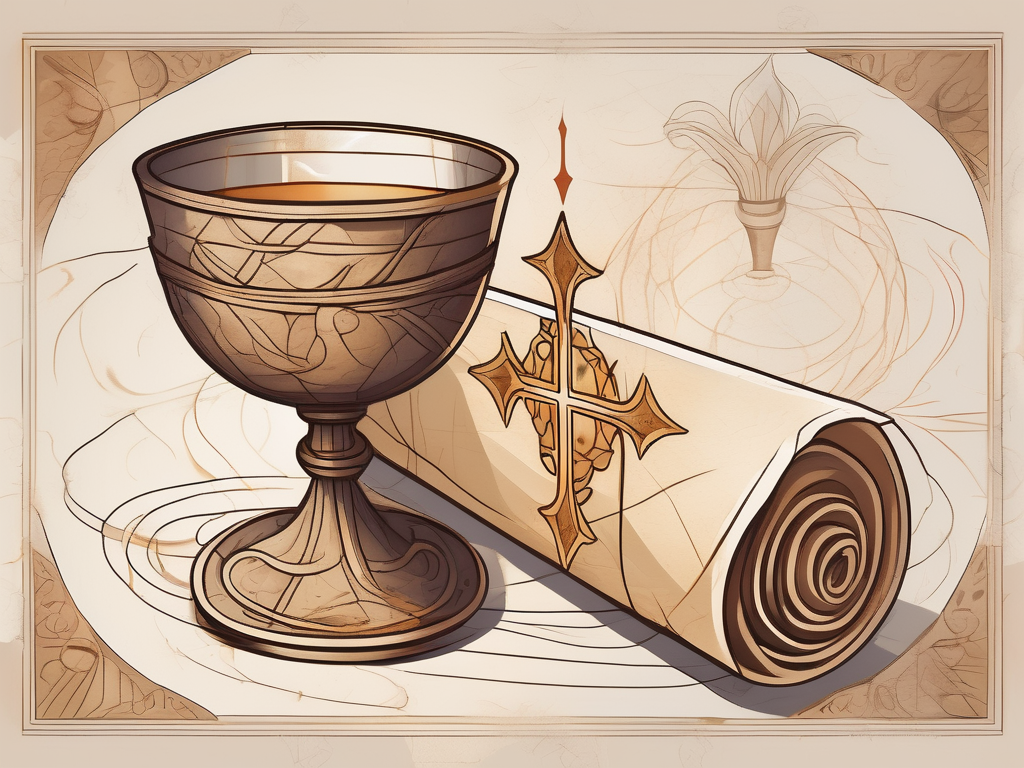Saint Joseph, also known as the earthly father of Jesus Christ, played a crucial role in the story of Christianity. This article explores the fascinating history and significance of this figure, shedding light on his role in different Christian traditions and his impact on art and culture. Join us on this journey as we delve into the life of Saint Joseph.
Understanding Saint Joseph: An Overview
Saint Joseph, a figure deeply revered by Christians worldwide, was the husband of Mary and the legal father of Jesus. He is mentioned in the Bible as a just and righteous man who played a pivotal role in nurturing and protecting the Holy Family. Although not much is known about his life, his unwavering faith and obedience to God’s plan make him an inspiration to many.
But who was Saint Joseph really? What were the circumstances that led him to become such an important figure in Christianity? Let’s delve deeper into his life and understand the significance of his role.
Who is Saint Joseph?
Saint Joseph, also known as Joseph of Nazareth, was a humble carpenter from the town of Nazareth. He was a descendant of King David and belonged to the tribe of Judah. In the Bible, he is described as a righteous man who followed the Jewish law and lived a life of virtue.
According to the Gospel of Matthew, Joseph was engaged to Mary when he discovered that she was pregnant. Confused and heartbroken, he initially planned to divorce her quietly to spare her any shame. However, an angel appeared to him in a dream, revealing that the child was conceived by the Holy Spirit and instructing him to take Mary as his wife.
Joseph’s unwavering faith in God’s plan is evident in his response to the angel’s message. Despite the social stigma surrounding Mary’s pregnancy, he willingly accepted his role as the earthly father of Jesus and embraced the responsibility with love and devotion.
The Role of Saint Joseph in Christianity
Saint Joseph’s role in Christianity extends beyond being the earthly father of Jesus. He exemplified traits of humility, faith, and selflessness, making him an important figure in Christian spirituality. He served as a guardian and protector of Mary and Jesus, providing an example of love and devotion.
As a carpenter, Joseph worked hard to provide for his family, ensuring their well-being and safety. He taught Jesus the skills of his trade and instilled in him a strong work ethic. Joseph’s dedication to his family and his willingness to sacrifice for their sake serve as a reminder of the importance of selflessness and putting others before oneself.
Furthermore, Saint Joseph’s acceptance of God’s will and his decision to marry Mary, knowing she carried a child from the Holy Spirit, illustrate his profound faith. He trusted in God’s plan and played a crucial role in the fulfillment of prophecies regarding the Messiah’s birth.
Throughout his life, Saint Joseph remained a steadfast pillar of support for Mary and Jesus. He protected them from harm, guided them with wisdom, and provided a loving and stable home for the Holy Family. His unwavering faith and devotion continue to inspire Christians to this day.
In recognition of his virtues and his role as the earthly father of Jesus, Saint Joseph is often regarded as the patron saint of fathers, workers, and the universal Church. Many Christians turn to him for guidance and intercession, seeking his help in their own lives and endeavors.
As we reflect on the life of Saint Joseph, we can learn valuable lessons from his example. His humility, faith, and selflessness serve as a reminder of the importance of living a virtuous life and trusting in God’s plan. May we all strive to emulate his virtues and find inspiration in his unwavering devotion to the Holy Family.
The Historical Background of Saint Joseph
Saint Joseph in the New Testament
The New Testament offers glimpses into Saint Joseph’s life, primarily through the Gospel accounts of Matthew and Luke. According to these scriptures, Joseph was from the lineage of King David and resided in Nazareth. His betrothal to Mary is a significant event and marks the beginning of their extraordinary journey together.
Joseph, a humble carpenter, was chosen by God to be the earthly father of Jesus. His acceptance of this divine calling demonstrates his deep faith and obedience. Joseph’s love for Mary is evident in his decision to quietly divorce her when he discovered she was pregnant, wanting to protect her from public shame. However, an angel appeared to Joseph in a dream, assuring him of Mary’s innocence and instructing him to take her as his wife.
The miraculous birth of Jesus, conceived by the Holy Spirit, further reveals Joseph’s unwavering faith. Despite the societal challenges and potential doubts that may have arisen, Joseph embraced his role as the earthly father of the Son of God. He lovingly cared for Mary and Jesus, providing them with a stable and nurturing home.
When King Herod sought to kill the infant Jesus, Joseph’s role as a protector became even more crucial. In another dream, an angel warned Joseph of the impending danger and instructed him to flee to Egypt with his family. Joseph immediately obeyed, ensuring the safety of Mary and Jesus from Herod’s wrath. Through his courage and devotion, Joseph played a vital part in fulfilling the prophecy that Jesus would be called out of Egypt.
Throughout these events, Joseph’s steadfastness and devotion to protect his family shine through. He selflessly put their well-being above his own, exemplifying the qualities of a loving and faithful husband and father.
Saint Joseph in Early Christian Writings
While the biblical accounts provide the foundation of Saint Joseph’s narrative, early Christian writings offer additional insights. Notably, the Apocrypha includes the Protoevangelium of James, a work that delves into the life of Mary and Joseph. It narrates their betrothal and emphasizes Joseph’s role as a guardian of Mary’s virginity.
In this text, Joseph is portrayed as a righteous and honorable man, chosen by God to protect the purity of the Mother of God. The Protoevangelium of James recounts how Joseph, upon discovering Mary’s pregnancy, was troubled and unsure of how to proceed. However, an angel appeared to him, explaining the divine nature of Mary’s conception and assuring him of God’s plan.
These texts, although not considered canon, shed light on the revered position Saint Joseph held in early Christian communities. They highlight the veneration and devotion that began to develop around his figure during those times. The Protoevangelium of James, in particular, emphasizes Joseph’s role as a faithful guardian and protector, chosen by God to play a vital part in the Incarnation.
As the earthly father of Jesus, Saint Joseph’s significance extends beyond his historical role. He serves as a model of faith, obedience, and selflessness for all believers. His example teaches us the importance of embracing God’s plan for our lives, even when it may be challenging or uncertain.
Throughout the centuries, devotion to Saint Joseph has grown, with many seeking his intercession and guidance in their own lives. He is recognized as the patron saint of fathers, workers, and the universal Church. Saint Joseph’s quiet strength and unwavering faith continue to inspire and guide believers, reminding us of the profound impact one person’s obedience and love can have on the world.
The Significance of Saint Joseph in Different Christian Traditions
Saint Joseph in Catholicism
In Catholicism, Saint Joseph holds an esteemed position. He is considered the patron saint of the universal Church, and his intercession is sought for various intentions. The Catholic Church also celebrates the Feast of Saint Joseph on March 19th, honoring his role as the foster father of Jesus and a model of virtue.
Many Catholic devotions and customs are centered around Saint Joseph, such as the practice of consecrating homes to him and the veneration of the Saint Joseph’s Altar during the Feast Day. These traditions reflect the deep admiration and gratitude Catholics hold for him.
Saint Joseph in Orthodox Christianity
In Orthodox Christianity, Saint Joseph is held in high regard, although his commemoration differs from that of Catholicism. While his exact feast day may vary across Orthodox jurisdictions, he is often honored alongside the ancestors and kinsmen of Christ on the Sunday before Christmas.
The Orthodox Church recognizes Joseph as the guardian and protector of the Theotokos, the Virgin Mary. His faith and righteousness are celebrated as vital qualities that contributed to the fulfillment of God’s plan for the salvation of humanity.
Saint Joseph in Protestantism
Protestant denominations generally place less emphasis on the veneration of saints, including Saint Joseph. However, he still holds significance as an important biblical figure. Protestant interpretations often emphasize Joseph’s character traits, highlighting his obedience to God’s guidance and the role he played in Jesus’ upbringing.
While not regarded with the same level of veneration as in Catholicism or Orthodoxy, Saint Joseph’s presence in the biblical narrative and his example of faith continue to inspire Protestant communities.
The Iconography of Saint Joseph
Saint Joseph in Art and Sculpture
The visual representation of Saint Joseph has a rich history in art and sculpture. Throughout centuries, artists have sought to capture the essence of this revered figure. From paintings depicting Joseph as a humble carpenter to sculptures that portray him alongside Mary and the infant Jesus, Saint Joseph’s image has been preserved and celebrated.
These artistic representations often aim to convey Joseph’s virtues and his integral role in the Holy Family. They serve as reminders of his unwavering faith and dedication, inspiring viewers to emulate these qualities in their own lives.
Symbolism Associated with Saint Joseph
Various symbols are associated with Saint Joseph. The lily is a recurring motif in Joseph’s iconography, symbolizing his purity and righteousness. Additionally, Joseph is depicted with a staff or carpentry tools, representing his revered profession as a carpenter. These symbols help capture the essence of Joseph’s character and his significance in the Christian narrative.
Saint Joseph’s Day: Celebrations and Traditions
The Origin and History of Saint Joseph’s Day
Saint Joseph’s Day, also known as the Feast of Saint Joseph, is a significant celebration in many Christian communities. Its origins can be traced back to medieval times, with the establishment of the Saint Joseph’s Table in Europe.
On this day, families and communities gather to honor Saint Joseph, expressing gratitude for his intercession and seeking his blessings. The festivities often include communal meals, parades, and the sharing of special Saint Joseph’s Day pastries such as zeppole or bigne.
Modern Day Celebrations of Saint Joseph’s Day
Saint Joseph’s Day continues to be observed by Christians worldwide, albeit with regional variations. In Italy, where the celebration has deep cultural roots, it is a public holiday, and elaborate processions are held. Similarly, in communities with a strong Catholic presence, such as those influenced by Italian or Spanish heritage, festivities abound.
These modern-day celebrations serve as a testament to the enduring legacy of Saint Joseph and illustrate the lasting impact he has had on Christian cultures throughout history.
In Conclusion
The history and significance of Saint Joseph are profound and encompass his pivotal role in Christianity, his remarkable attributes, and the cultural celebrations that honor him. Understanding the life and impact of this humble carpenter elevates our appreciation for his unwavering faith and devotion. As we continue to explore the inspiring stories of the saints, let us find inspiration in Saint Joseph’s example and strive to emulate his virtues in our own lives.












